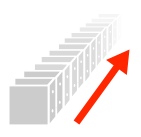xczxc asdasd
Top Features to Look for in a Construction Tech Platform The construction industry is rapidly evolving with the adoption of digital tools that streamline workflows, enhance productivity, and improve visibility across jobsites. With tighter deadlines, labor shortages, and increasing project complexity, construction businesses can no longer afford to rely on outdated systems or manual tracking. That’s where construction tech platforms come into play—powerful, integrated systems that bring together everything from asset tracking and project management to communication and documentation. But with so many options on the market, how do you choose the right one? 1. Real-Time Equipment and Asset Tracking One of the most essential features of a modern construction tech platform is real-time equipment tracking. Losing sight of heavy machinery, vehicles, or tools can cost companies thousands of dollars in delays and unproductive labor hours. Look for platforms that: Use GPS, telematics, and QR codes for precise tracking Provide live location updates Offer maintenance alerts and utilization data Tenna, for example, provides a robust asset management system that allows construction companies to track owned and rented equipment across multiple jobsites. With real-time data, businesses can reduce idle time, plan better, and avoid costly losses. 2. Project Management & Scheduling Tools Effective scheduling and resource planning can make or break a construction project. A reliable tech platform should offer intuitive tools to: Plan tasks and allocate resources Track project milestones and timelines Monitor delays and bottlenecks Coordinate between field crews and office staff By keeping everyone on the same page, these tools help reduce miscommunication and costly rework. Construction platforms like Tenna allow for centralized scheduling and planning, offering a clear picture of resource availability and jobsite progress. 3. Mobile Access and Field Reporting Construction doesn't happen in the office—it happens on the field. That’s why mobile access is a critical feature. Field workers should be able to: Submit daily logs Upload images and documentation Complete checklists or forms Communicate with managers in real-time A construction platform with a well-designed mobile app empowers crews to stay connected, improve accountability, and document progress without delay. Tenna's mobile tools are built with the field user in mind, ensuring ease of use even in challenging jobsite environments. 4. Centralized Data and Documentation Every construction project generates massive amounts of data—from contracts and RFIs to inspections and incident reports. A good tech platform should: Centralize all documents in one cloud-based system Allow version control and access permissions Support integrations with other construction software (like Procore, Autodesk, etc.) This ensures easy access to critical documents at any time, avoiding the chaos of paper files and scattered spreadsheets. Tenna’s integrated documentation tools make it easier to stay compliant and audit-ready. 5. Customizable Dashboards and Reporting Every construction company has different needs, which is why a customizable dashboard and advanced reporting features are essential. Whether you’re tracking labor productivity, fuel usage, or equipment downtime, your tech platform should: Offer flexible KPI tracking Provide visual dashboards and charts Generate automated reports for stakeholders These features help business owners and project managers make informed decisions based on accurate, real-time insights. Tenna’s reporting tools offer valuable analytics that highlight both opportunities and potential risks before they affect project timelines. 6. Integrations and API Compatibility A construction technology platform doesn’t operate in a vacuum. It should integrate with your existing systems to provide a seamless digital ecosystem. Common integrations include: Accounting software (QuickBooks, Sage) Payroll systems Fleet and fuel management tools BIM and CAD systems Tenna’s open API capabilities allow construction businesses to connect their preferred tools into a single ecosystem, eliminating data silos and boosting operational efficiency. 7. User-Friendly Interface No matter how powerful the platform is, it won’t matter if your team can’t use it. A well-designed, user-friendly interface: Reduces training time Encourages adoption across the team Minimizes human error Construction platforms like Tenna prioritize usability by designing intuitive dashboards and workflows tailored for contractors, field crews, and office staff alike. 8. Maintenance Management Unexpected breakdowns can derail projects and inflate budgets. That’s why preventive maintenance and service tracking should be built into your construction tech platform. Look for features like: Automated service alerts based on usage hours or mileage Maintenance history logs Customizable inspection checklists Tenna enables businesses to schedule preventive maintenance and get notified before issues escalate—helping extend the life of their fleet and avoid costly downtime. 9. Safety & Compliance Features Regulatory compliance is a non-negotiable in construction. Your platform should support: Safety checklists and incident reporting OSHA compliance tracking Digital signatures and audit trails Tenna’s compliance tools support consistent documentation and risk management, helping contractors stay ahead of legal and safety requirements without paper-based processes. 10. Scalability and Support Your construction platform should grow with you. Whether you're managing five projects or fifty, the platform should scale without compromising performance. Make sure to evaluate: Customer support availability Onboarding resources and training Scalability of licenses and pricing plans Tenna offers tailored onboarding and scalable solutions for companies of all sizes, along with a responsive support team that understands the construction industry's unique challenges. Final Thoughts Investing in the right construction technology platform can transform the way your business operates. From improving asset visibility and field communication to streamlining project management and compliance, the right features can give you a competitive edge in a fast-moving industry.
By:
asdsad
Sports
Views: 0
Useful: 0


